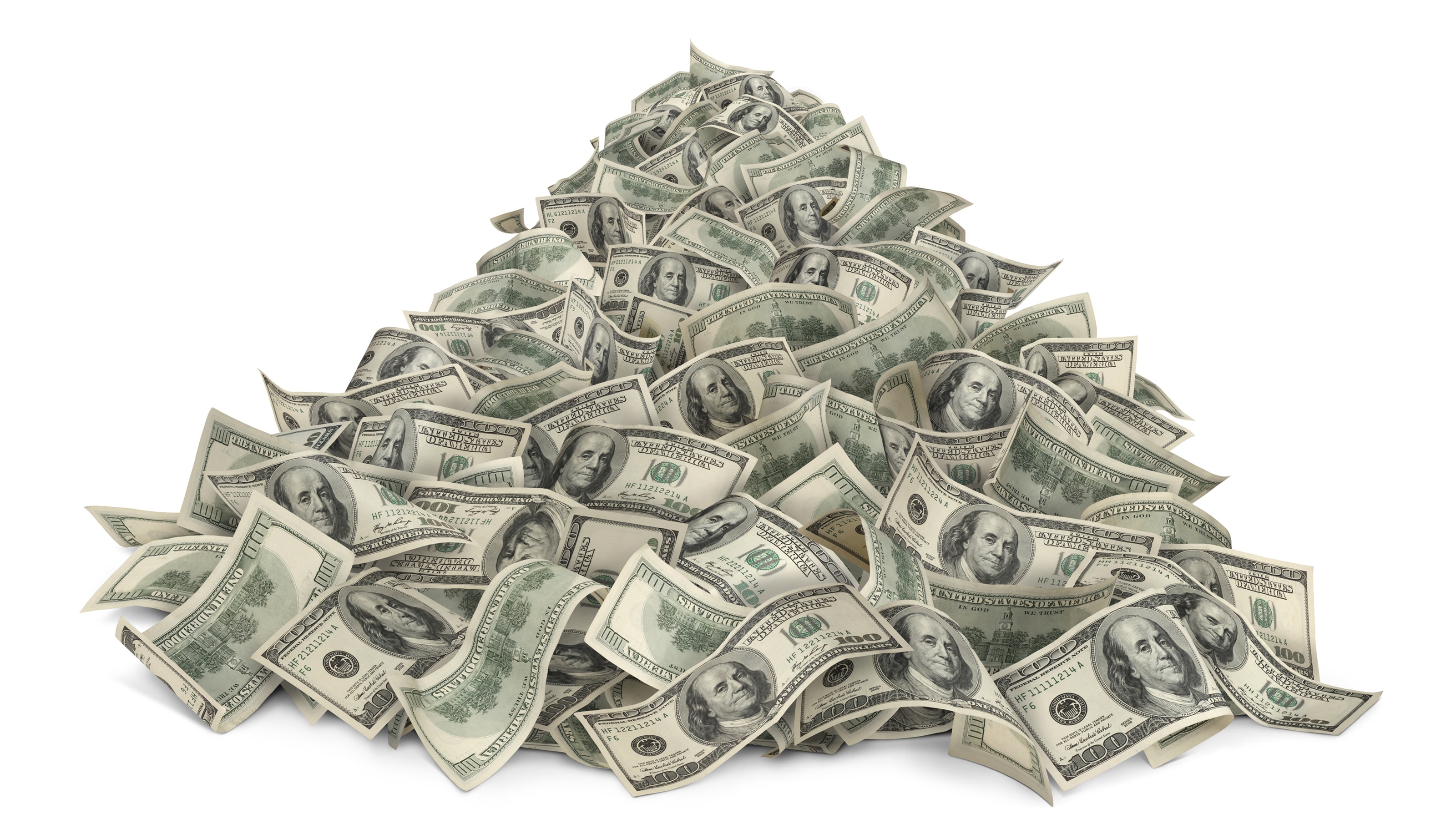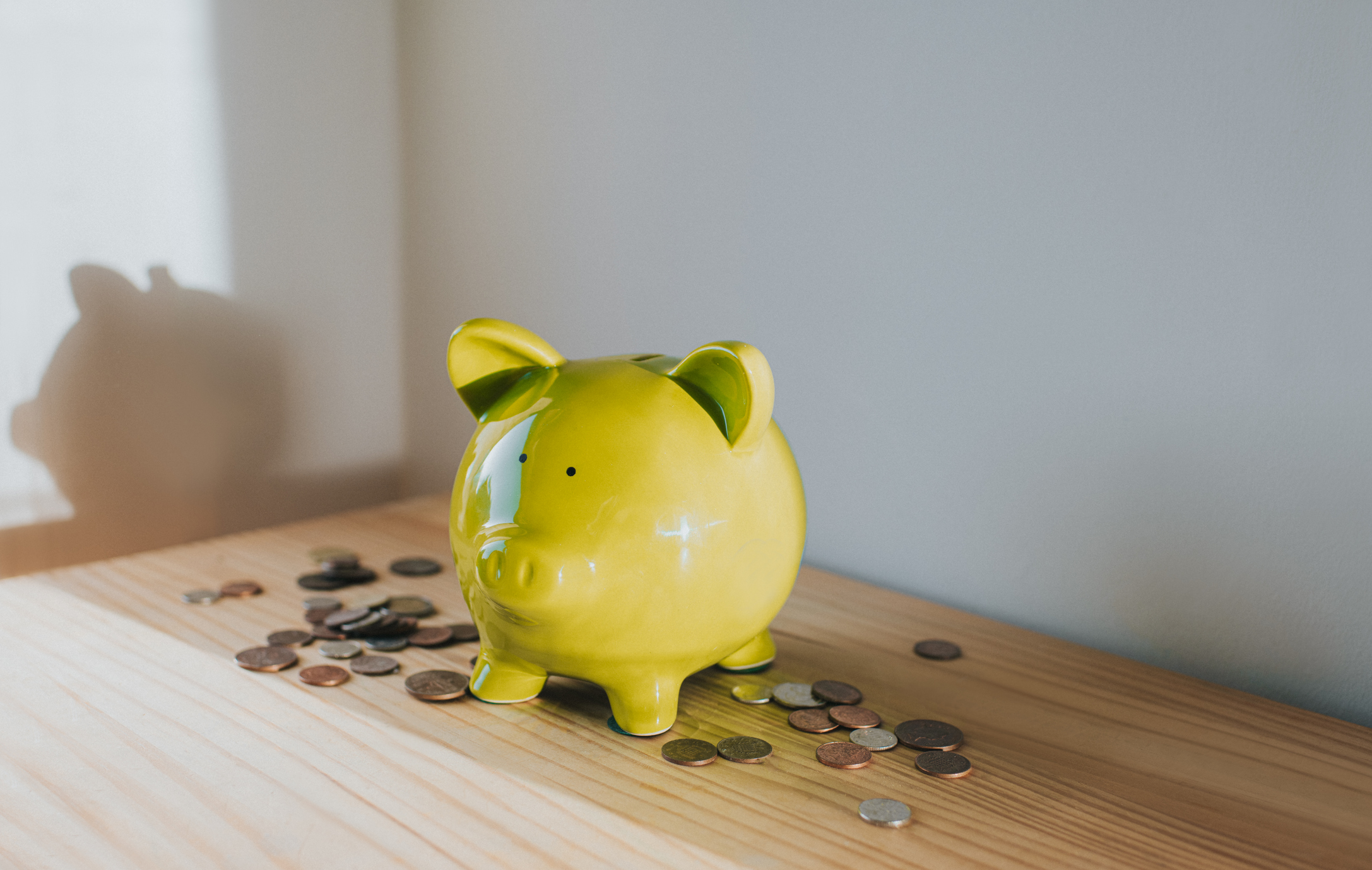Four Ways a Massive Emergency Fund Can Hurt You More Than It Helps
Saving too much could mean you're missing opportunities to put your money to work. Redirect some of that money toward paying off debt, building retirement funds, fulfilling a dream or investing in higher-growth options.


Profit and prosper with the best of Kiplinger's advice on investing, taxes, retirement, personal finance and much more. Delivered daily. Enter your email in the box and click Sign Me Up.
You are now subscribed
Your newsletter sign-up was successful
Want to add more newsletters?

Delivered daily
Kiplinger Today
Profit and prosper with the best of Kiplinger's advice on investing, taxes, retirement, personal finance and much more delivered daily. Smart money moves start here.

Sent five days a week
Kiplinger A Step Ahead
Get practical help to make better financial decisions in your everyday life, from spending to savings on top deals.

Delivered daily
Kiplinger Closing Bell
Get today's biggest financial and investing headlines delivered to your inbox every day the U.S. stock market is open.

Sent twice a week
Kiplinger Adviser Intel
Financial pros across the country share best practices and fresh tactics to preserve and grow your wealth.

Delivered weekly
Kiplinger Tax Tips
Trim your federal and state tax bills with practical tax-planning and tax-cutting strategies.

Sent twice a week
Kiplinger Retirement Tips
Your twice-a-week guide to planning and enjoying a financially secure and richly rewarding retirement

Sent bimonthly.
Kiplinger Adviser Angle
Insights for advisers, wealth managers and other financial professionals.

Sent twice a week
Kiplinger Investing Weekly
Your twice-a-week roundup of promising stocks, funds, companies and industries you should consider, ones you should avoid, and why.

Sent weekly for six weeks
Kiplinger Invest for Retirement
Your step-by-step six-part series on how to invest for retirement, from devising a successful strategy to exactly which investments to choose.
Emergency funds play a huge role in financial well-being.
Vanguard research shows that setting aside $2,000 can boost your financial stability by 21%. If you add three to six months' worth of expenses, you get another 13% bump, even after factoring in income, debt and other assets.
An emergency fund is the money you set aside to cover unexpected expenses during unforeseen circumstances, such as a job loss, medical situations and house repairs. But if you're oversaving for this fund, that can be a problem, unlikely as it might seem.
From just $107.88 $24.99 for Kiplinger Personal Finance
Become a smarter, better informed investor. Subscribe from just $107.88 $24.99, plus get up to 4 Special Issues

Sign up for Kiplinger’s Free Newsletters
Profit and prosper with the best of expert advice on investing, taxes, retirement, personal finance and more - straight to your e-mail.
Profit and prosper with the best of expert advice - straight to your e-mail.
How come? We'll discuss the hidden risks of maintaining an overly large emergency fund, because saving too much could hurt instead of help.
Kiplinger's Adviser Intel, formerly known as Building Wealth, is a curated network of trusted financial professionals who share expert insights on wealth building and preservation. Contributors, including fiduciary financial planners, wealth managers, CEOs and attorneys, provide actionable advice about retirement planning, estate planning, tax strategies and more. Experts are invited to contribute and do not pay to be included, so you can trust their advice is honest and valuable.
The problem with saving too much
Vanguard's report speaks volumes. It's wise to save to establish financial stability.
However, oversaving for your emergency fund can be problematic. You're missing out on other monetary opportunities that could potentially grow your wealth and provide a higher quality of life.
Signs you're saving too much:
- You've got more than a year's worth of expenses sitting in savings
- Your investment accounts and retirement funds aren't where they should be
- You focus on stashing cash instead of knocking out high-interest debt
- You feel uneasy about moving money into investments that could grow faster
Among the hidden financial risks of oversaving for your emergency fund:
1. Lost financial growth
When all your extra money sits in a basic savings account, it likely earns little interest.
Better options include a high-yield savings accounts with interest rates of up to 4.35% or in stocks, bonds, mutual funds and real estate investment trusts (REITs).
Andrew Bates, COO at Bates Electric, recommends establishing high-yield savings and investment accounts after building an emergency fund. He believes it's one way to avoid losing the financial growth you deserve.
"Parking too much cash in your emergency fund means you're missing out on real growth," Bates says. "A smarter move is to use high-yield savings for liquidity and put the rest into investments like stocks or REITs, where your money can actually work for you."
2. Potential inflation risk
As prices go up every year, savings slowly lose value, especially if you live in cities hit hard by inflation. As of August 2025, the inflation rate in the U.S. is 2.9%.
If your savings account for your emergency fund earns only 2%, your money is actually shrinking in terms of purchasing power. The more cash you stockpile, the bigger this hidden loss becomes.
Leon Huang, CEO at RapidDirect, suggests beating inflation through investment diversification instead of putting extra money in an emergency fund.
"Keeping too much in low-interest savings is like letting inflation chip away at your money," Huang explains. "Diversifying into assets like stocks and bonds helps preserve and even grow your purchasing power over time.
"Remember, don't let your savings sit idle when they could be working harder for you."
3. Financial opportunity cost
Every extra dollar in your emergency fund is money not working elsewhere. It's just sitting in a low-yield savings account when that money could be growing or improving your finances.
Use it to pay off high-interest debt, prepare for retirement or buy your dream home or start a business, for example.
The message is clear: Oversaving for your emergency fund means missing out on several opportunities.
Learn from Edward White, head of Growth at beehiiv. When he earns extra money from his income or business, he considers balancing various aspects of his finances.
"Cash that just sits in a savings account isn't doing you any favors," White says. "Redirecting that money toward paying off debt, building retirement funds or investing in your next big project creates real financial progress. At the end of the day, money should be a tool for growth, not just a safety net."
4. Psychological mindset trap
There's a line between being financially secure and overly cautious. Having a substantial amount of money can feel reassuring.
However, you could end up being financially trapped. For example, you avoid paying off loans and making investments because you're clinging to that "safety net." Over time, this mindset can hinder your financial progress.
Take it from Raihan Masroor, founder and CEO at Your Doctors Online. He once feared making investments and expanding his business by going digital. However, he quickly learned that this mindset means not making financial progress.
Masroor warns against the psychological trap of oversaving. "Clinging too tightly to cash can make you overly cautious and stall your growth.
"I've learned that avoiding investments or expansion out of fear doesn't protect you, but keeps you stuck. True financial security comes from balance, not from hoarding money."
Finding the sweet spot
The reason you're saving for an emergency fund is to prepare for unexpected situations or manage your fluctuating income. But if you've saved enough to be financially prepared for the rainy seasons, you can use extra cash for other financial opportunities.
Start by saving just enough for your emergency fund. There's no set amount for an emergency fund. The target largely depends on your income and expenses, as well as dependents and overall lifestyle.
According to most financial experts, the general rule is simple: Build three to six months' worth of living expenses.
This means that if you suddenly lose your job, for example, you can cover expenses such as bills and groceries for three to six months, or until you find new employment.
What to do with extra money
Once you hit your emergency funds target, use your extra money for other financial opportunities:
Debt payments (credit cards, personal loans, mortgage, etc.). It's more practical to use your money to settle debts, whether you're paying off credit cards or personal loans. It doesn't make sense to oversave for your emergency fund if you haven't zeroed out your debts.
Specific savings (education, real estate, travel, etc.). Put extra cash into a high-yield savings account, which will exponentially grow your money. You can also use this money to invest in your dream house, finance your children's future education or even find deals on your travel in 2025.
Looking for expert tips to grow and preserve your wealth? Sign up for Adviser Intel (formerly known as Building Wealth), our free, twice-weekly newsletter.
Basic insurance (health insurance, life insurance, etc.). To protect yourself from financial risks, it's wise to invest in different types of insurance.
Consider getting medical coverage, whole life insurance, a dental policy and/or pharmaceutical benefits. Think of these as secondary emergency funds.
Investment diversification (stocks, bonds, mutual funds, REITs, etc.). It's a good idea to get strategic about your investments by diversifying your portfolio. Not only will this help grow your money, but it also reduces your financial risks.
Wrapping up
Building an emergency fund is one of the first steps to establishing your financial security. But if you oversave for this fund, you might lose investment growth and face inflation risks. You might be psychologically trapped, missing out on many financial opportunities.
Build three to six months' worth of living expenses, then, allocate extra money towards loans, savings, insurance and investments.
When it comes to money, it's a numbers game — be wise about saving and investing.
Related Content
- Saving for Your Emergency Fund: As Easy as 1-3-6
- The Seven-Day Financial Reset: A Simple Plan to Get Control of Your Money, From an Expert
- I'm a Financial Adviser: This Is How You Can Save for Big Goals Even if You Feel Like You're Barely Getting By
- Extra Cash? Should You Pay Off Debt or Invest?
Profit and prosper with the best of Kiplinger's advice on investing, taxes, retirement, personal finance and much more. Delivered daily. Enter your email in the box and click Sign Me Up.

Anthony Martin is CEO and Founder of Choice Mutual. Nationally licensed life insurance agent with 10+ years of experience. Official Member at Forbes Finance Council. Obsessed with finances, building tech and collaborating with other successful entrepreneurs.
-
 Nvidia Earnings: Live Updates and Commentary February 2026
Nvidia Earnings: Live Updates and Commentary February 2026Nvidia's earnings event is just days away and Wall Street's attention is zeroed in on the AI bellwether's fourth-quarter results.
-
 I Thought My Retirement Was Set — Until I Answered These 3 Questions
I Thought My Retirement Was Set — Until I Answered These 3 QuestionsI'm a retirement writer. Three deceptively simple questions helped me focus my retirement and life priorities.
-
 How to Use Home Equity to Help With Your Long-Term Goals
How to Use Home Equity to Help With Your Long-Term GoalsHomeowners are increasingly using their home equity, through products like HELOCs and home equity loans, as a financial resource for managing debt, funding renovations and more.
-
 Nvidia Earnings: Live Updates and Commentary February 2026
Nvidia Earnings: Live Updates and Commentary February 2026Nvidia's earnings event is just days away and Wall Street's attention is zeroed in on the AI bellwether's fourth-quarter results.
-
 I Thought My Retirement Was Set — Until I Answered These 3 Questions
I Thought My Retirement Was Set — Until I Answered These 3 QuestionsI'm a retirement writer. Three deceptively simple questions helped me focus my retirement and life priorities.
-
 How You Can Use the Financial Resource Built Into Your Home to Help With Your Long-Term Goals
How You Can Use the Financial Resource Built Into Your Home to Help With Your Long-Term GoalsHomeowners are increasingly using their home equity, through products like HELOCs and home equity loans, as a financial resource for managing debt, funding renovations and more.
-
 How to Find Free Money for Graduate School as Federal Loans Tighten in 2026
How to Find Free Money for Graduate School as Federal Loans Tighten in 2026Starting July 1, federal borrowing will be capped for new graduate students, making scholarships and other forms of "free money" vital. Here's what to know.
-
 5 Tips To Get Your Kids Investing as Soon as Possible
5 Tips To Get Your Kids Investing as Soon as PossibleTeaching your kids to invest early will help them build a solid financial future. Here are five ways to get them started.
-
 We've Reached Our $5 Million Retirement Savings Goal, but at 66, My Husband Still Doesn't Feel Ready.
We've Reached Our $5 Million Retirement Savings Goal, but at 66, My Husband Still Doesn't Feel Ready.We are 66 and have reached our retirement savings goal. Our plan is to travel, but my husband can't seem to let go of work.
-
 Aging in Place Can Be Bad for Your Health: This Financial Pro's Alternative Is a No-Brainer
Aging in Place Can Be Bad for Your Health: This Financial Pro's Alternative Is a No-BrainerWhy age alone in financial hardship when you can enjoy companionship — and share the costs of housing, groceries and health care — with a small community of friends?
-
 Want to Buy a Home With a Friend? Here's How to Prevent Legal Headaches
Want to Buy a Home With a Friend? Here's How to Prevent Legal HeadachesWith rising home prices leading more people to co-buy homes with friends, it's essential to have a co-tenancy agreement that clearly defines the deal.